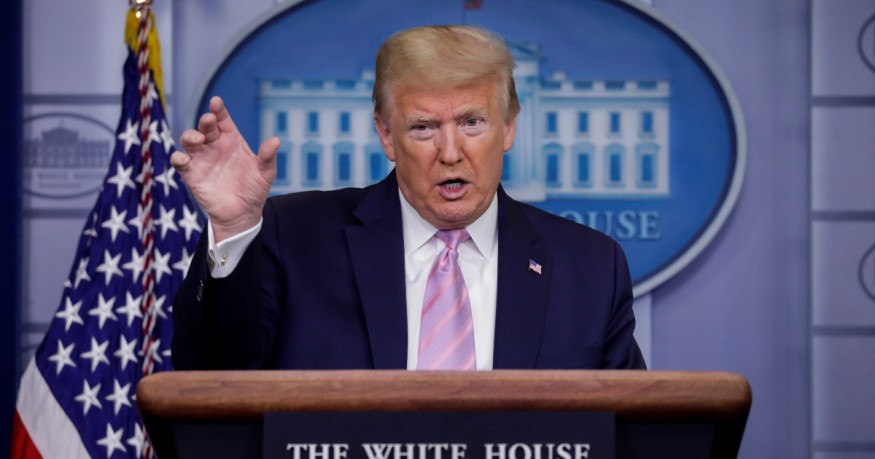Trump Offers To Help Mexico Amid Oil Price Wars

U.S. President Donald Trump declared in a White House briefing on Friday that he offered to help Mexico after it previously balked at a ten million-barrel-a-day agreement the Saudis and Russians were pushing and refused to agree to its share of cuts.
In a recent article, Trump revealed he had a late-night conversation with Mexico's President Andres Manuel Lopez Obrador, which led to the said deal.
On Friday, oil markets were closed as G20 energy ministers discussed to finalize the agreement.
READ: Trump to Expedite Aid to U.S. Farmers Affected by the Pandemic
But the prospect of cuts had failed to boost prices a day earlier, and many analysts noted they would do little to counterbalance the massive drop in demand due to the ongoing COVID-19 crisis as travels were halted while industries were put on hold across the world.
Make Up The Difference
"We'd make up the difference," he said at a White House briefing, then immediately added, "Now, the U.S. production has already been cut."
"We are trying to get Mexico, as the expression goes, over the barrel," he added. "The United States will help Mexico along, and they'll reimburse us at a later date when they're prepared to do so."
In the U.S., government-directed supply cuts are highly unusual.
Energy analysts have aired some doubts as to how the deal with Mexico would turn out.
"Everything would suggest that Trump's 'promise' to cut oil production for Mexico is a lot of hot air," tweeted Gregory Brew, a historian of the oil business. "He has done nothing to indicate he supports taking direct action to rein in U.S. production."
Also, on Friday, López Obrador told journalists that in their phone call the night before, Trump identified all the countries that had accepted the deal in a meeting of the OPEC plus nations Thursday. He then asked why Mexico balked.
ALSO READ: Types of Businesses That Perform Well During Economic Recessions
"I made a proposal that fortunately he accepted, which is that they [the United States] would compensate," López Obrador said. "When I said that we couldn't do more than 100,000 [barrels a day], he very generously said they could help with the extra 250,000, they could handle that, and I thank him for that."
López Obrador has maintained a cordial relationship with Trump despite substantial policy differences.
Since taking office in December 2018, the Mexican president has actively moved to strengthen PEMEX, Mexico's state oil giant, and ramp up its production, despite showing a poor performance for years.
Time For Renewable
Amidst the oil price war, environmental campaign group Greenpeace said that the world needs to move away from using oil altogether.
John Sauven, Greenpeace executive director, said: "In the context of climate change, production cuts don't matter one way or the other - the overwhelming impact of oil comes from its use."
"The economics of oil have always been beholden to geopolitics, rivalries between producing countries, as well as industry interests with no regard for people or planet."
"The urgent question facing us now is how to make sure that any future recovery builds a safe, resilient, and healthier economy that can withstand future shocks and avoid climate breakdown. We need to build that recovery on clean, affordable renewable energy."
READ MORE: Government Offers $490M Ventilator Contract as Federal Stockpiles Hit Critical Level
Trump acknowledged that members of OPEC plus nations, particularly Saudis and Russians, might not agree with the Mexican ploy.
"I don't know that it's going to be accepted," he said. "We'll find out."
Subscribe to Latin Post!
Sign up for our free newsletter for the Latest coverage!
© 2026 Latin Post. All rights reserved. Do not reproduce without permission.














